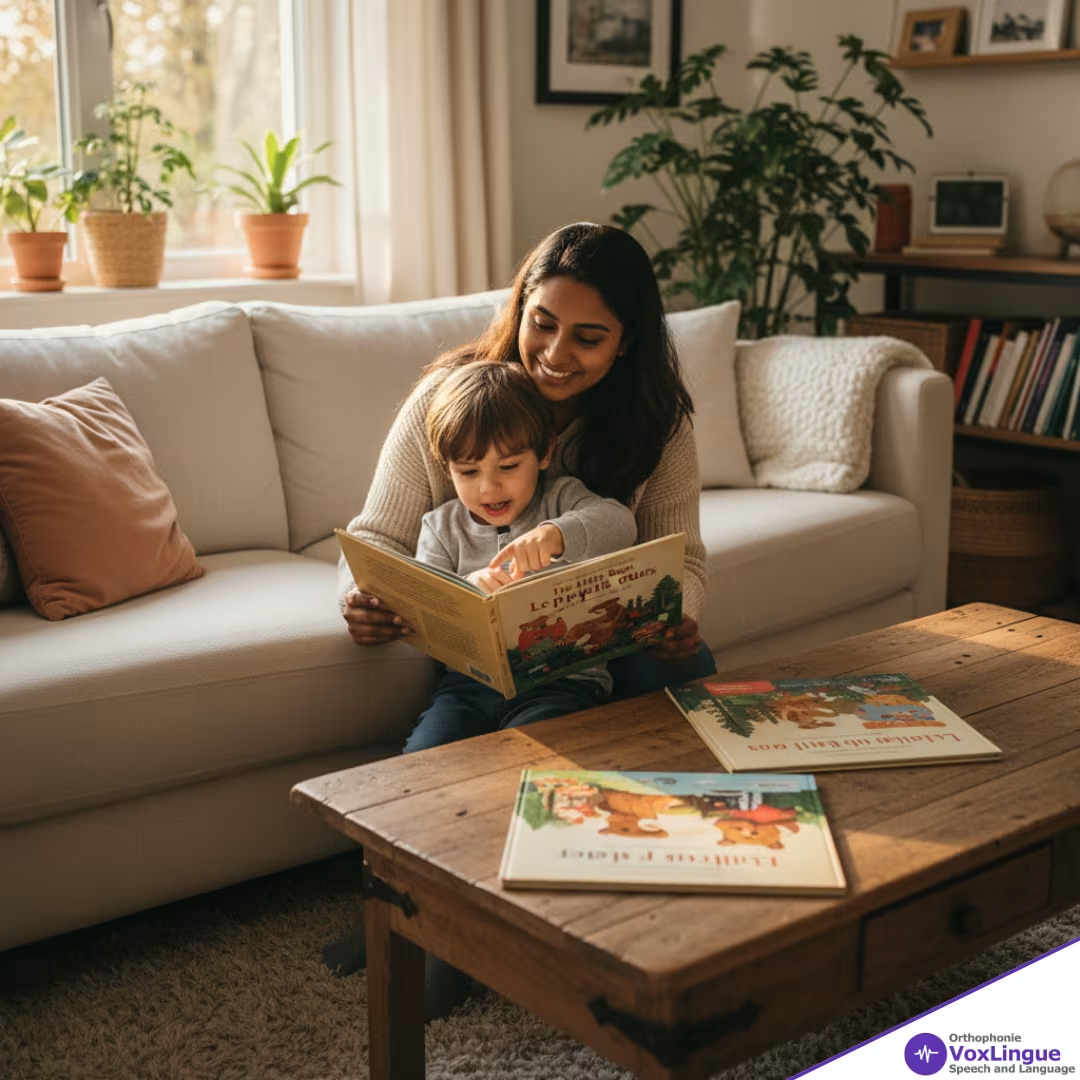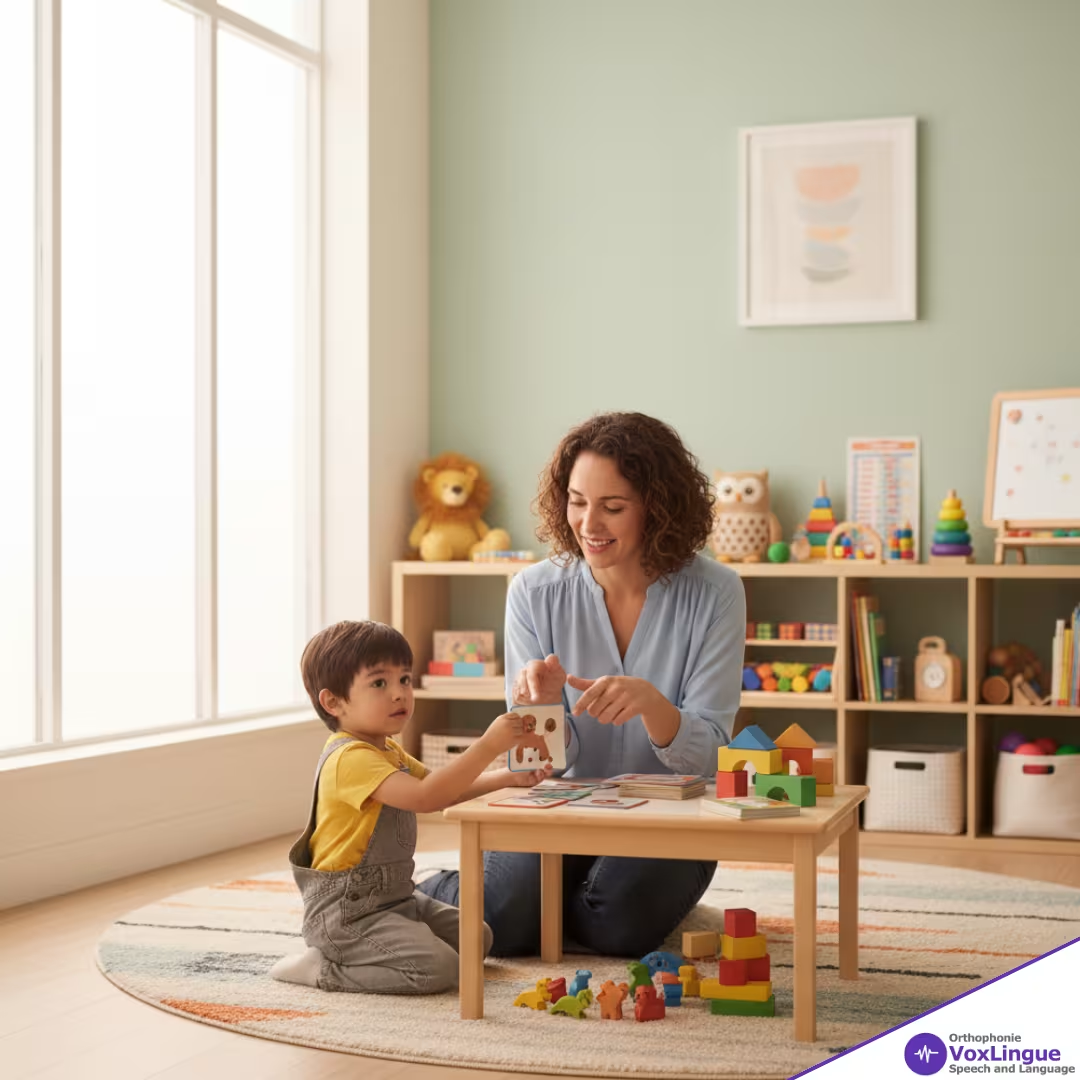Speech Therapy in Montreal: Helping Families Strengthen Communication



Montreal is a city defined by its languages, its stories, and its people. Every street, park, and classroom carries the sound of communication in motion. From morning greetings in French cafés to the chatter of children switching between English and French at the playground, language shapes how Montrealers connect and grow. At Orthophonie VoxLingue, we are proud to be part of this vibrant community, helping families nurture strong communication skills in both official languages.
For many families, Montreal’s bilingual environment provides rich opportunities for language learning. It also brings unique questions about how children acquire and use more than one language. Parents often wonder whether mixing words between languages is normal, or how to tell if a child’s speech delay is related to learning two languages. These are thoughtful questions, and understanding them can help families support language development with confidence.
Strong communication skills build more than speech. They foster confidence, independence, and curiosity in every aspect of daily life. Whether a child is sharing stories at school, greeting friends in the neighborhood, or exploring Montreal’s cultural spaces, the ability to express and understand language is at the heart of how they learn and connect.
At VoxLingue, our mission is to guide families toward this growth through compassionate, evidence-based care. We work with children, teens, and adults across Montreal to strengthen speech and language skills while encouraging communication that feels natural and enjoyable.
You can learn more about how speech and language are assessed in our Assessment section, where we explain how our process identifies strengths, challenges, and next steps.
For families who wish to explore community opportunities that support communication, the Ville de Montréal website lists excellent local programs, events, and cultural activities where children can practice new skills in engaging and social settings.

Montreal’s bilingual character offers children a remarkable advantage in language learning. From an early age, many children are exposed to more than one language at home, at school, or within their community. This exposure helps them develop flexible thinking, cultural awareness, and the ability to switch between languages with ease. Research consistently shows that bilingualism can strengthen memory, attention, and problem-solving skills. Yet, for parents, it can also raise understandable questions about how language develops across two systems.
It is important to know that language mixing, such as using words from both languages in the same sentence, is a natural and healthy part of bilingual development. Children often draw from all the words they know to express themselves. As their vocabulary in each language grows, they gradually learn when and how to use each one depending on the situation. This process takes time, and every child develops at their own pace.
In a city like Montreal, where both French and English are present in daily life, it is common for parents to wonder if certain patterns are typical or if their child may benefit from support. While bilingualism itself does not cause speech or language delays, challenges can appear for other reasons, such as difficulties with sound pronunciation, understanding instructions, or forming longer sentences. When families notice that a child struggles to communicate in either language compared to peers, a speech and language assessment can provide clarity and reassurance.
A formal assessment helps identify whether a child’s language development is progressing typically or if additional support would be beneficial. Speech-language pathologists use a variety of tools to evaluate each language the child uses, always considering cultural and linguistic background. This process ensures that recommendations are accurate and respectful of each family’s unique context.
Parents interested in learning more about how bilingual environments influence communication can explore our article on Bilingual Child Language Development. For those seeking research-based insights, McGill University’s School of Communication Sciences and Disorders provides valuable information on bilingual language acquisition and current academic perspectives in the field.

At Orthophonie VoxLingue, speech therapy is guided by a simple yet powerful principle: communication grows best when it is meaningful, engaging, and supported by the people who matter most. Our approach blends evidence-based methods with a warm, play-centered atmosphere that helps children and adults feel comfortable exploring new sounds, words, and ideas. We believe that therapy should never feel like a task. Instead, it should invite curiosity and confidence while addressing each person’s unique needs.
Play is at the heart of how young children learn. Through play, they experiment with sounds, gestures, and social interaction, all of which build the foundation for speech and language development. Our sessions for children often use storytelling, games, and creative activities that encourage spontaneous communication. These moments are not only enjoyable but also rich opportunities to model new vocabulary, sentence structures, and social communication strategies.
For teens and adults, therapy focuses on functional and personalized goals. Adolescents may work on academic language, public speaking, or fluency strategies that support their confidence at school or in social settings. Adults may seek therapy to improve voice quality, pronunciation, or cognitive-communication skills following an injury or illness. Each plan is carefully adapted to individual goals and daily routines, ensuring that progress made in therapy translates into real-world communication success.
Because Montreal is a bilingual city, therapy often involves more than one language. Our clinicians are trained to understand how bilingualism shapes communication and to design sessions that reflect each client’s linguistic environment. For some families, this may mean alternating between French and English activities. For others, it may involve building a stronger foundation in one language while maintaining skills in the other. Supporting bilingual development helps clients express themselves naturally in the settings that matter most: whether at home, at school, or in the community.
Speech therapy is most effective when it includes collaboration. Parents, caregivers, and family members are encouraged to participate by learning strategies to use at home. Small daily moments, such as reading together or having conversations during mealtime, can reinforce progress and make learning continuous.
For a deeper look at how we adapt our sessions and techniques, visit our Treatment page, where we describe how therapy supports communication at every stage of life.
Montreal is more than a bilingual city. It is a place where culture, creativity, and communication are woven into everyday life. For children learning to speak and express themselves, the city itself can become an extension of the therapy room. Each neighborhood, festival, and community space offers rich opportunities to listen, observe, and practice language in meaningful ways.
Montreal’s blend of French and English, along with many other languages spoken at home, gives children daily exposure to varied accents, expressions, and social interactions. This natural immersion helps them build flexibility in understanding and using language. Whether they are talking to a shopkeeper, playing with friends in a park, or describing something new they learned at school, children are constantly engaging with diverse communication styles. These moments reinforce the same skills that speech therapy helps refine: listening closely, finding the right words, and building confidence through connection.
Families can nurture communication skills by turning everyday outings into language-learning opportunities. The Grande Bibliothèque offers storytime sessions where children can listen to new vocabulary and explore storytelling. At the Montreal Science Centre, hands-on exhibits encourage children to ask questions, explain ideas, and describe what they observe. A visit to the Jean-Talon Market can become a language-rich experience, as children name fruits and vegetables, count items, and talk about the colors and smells around them. These natural conversations build vocabulary, sentence structure, and social communication in both French and English.
Experiences like these remind families that language learning is not limited to structured lessons. It grows through curiosity, exploration, and meaningful human interaction. Speech therapy complements these moments by helping families recognize how to turn real-world experiences into learning opportunities. A child who practices a new word during therapy might later use it while describing something they saw at the market or explaining a discovery from a museum visit.
Parents who wish to explore more opportunities for language-rich experiences can visit the Grande Bibliothèque de Montréal to find upcoming storytimes and community literacy events. Each experience offers a new way for children to connect with language and for families to make communication a joyful part of daily life.

Families across Montreal can find accessible and welcoming spaces at our two VoxLingue clinics. Each location was chosen with care to ensure that families can reach us easily and feel comfortable from the moment they arrive. Our environments are designed to support learning and communication while offering the calm and warmth needed for meaningful progress.
Our LaSalle clinic serves families in the southwest area of Montreal. Located near parks, community centers, and several schools, it provides a convenient setting for children and parents balancing busy routines. The neighborhood’s family-oriented atmosphere creates a natural connection between therapy and everyday communication experiences. Families often appreciate the opportunity to schedule sessions before or after school hours, making therapy an easy part of the week.
Our Marché Central clinic offers another option for families seeking speech and language services closer to the city’s central and northern areas. Its location is ideal for families traveling from Ahuntsic, Villeray, or Laval, and it is easily accessible by both public transit and major roadways. This clinic combines convenience with a professional, family-friendly environment that welcomes clients of all ages. Parents can also take advantage of nearby shops and cafés while their child is in session, turning therapy visits into a pleasant part of their day.
At both clinics, our goal is to create an environment where communication can grow naturally. Therapy spaces are designed to be engaging and supportive, with activities that help children and adults feel at ease while learning. We understand that consistency and comfort play an important role in progress, and we strive to make every visit a positive experience for families.
To find directions, transportation details, or to reach our team directly, please visit our Contact Us page. Our staff will be happy to guide you in choosing the location and schedule that best fits your family’s needs.
Communication is at the center of how children learn, connect, and grow. When children develop clear speech and strong language skills, they gain more than the ability to express words. They build confidence, emotional awareness, and a sense of belonging in the world around them. For parents, supporting this growth is one of the most meaningful ways to help a child succeed at home, in school, and in relationships.
Children who can express their thoughts clearly often participate more actively in class discussions, follow directions with ease, and feel more comfortable sharing ideas with peers. These skills contribute directly to academic success, as language forms the foundation for reading, writing, and problem-solving. Communication also plays an important role in emotional well-being. When children can describe their feelings and experiences, they develop stronger emotional regulation and resilience. They learn that their voices matter and that they can be understood.
Speech therapy supports this journey by identifying and strengthening the specific areas that influence communication. Whether the goal is to improve pronunciation, expand vocabulary, or build confidence in conversation, progress is achieved through consistent, personalized guidance. Families often notice that even small improvements can lead to significant changes in a child’s confidence and social comfort.
Parents also play a key role in reinforcing communication growth outside of therapy. Simple routines, such as reading together, asking open-ended questions during mealtime, or encouraging storytelling before bedtime, can create powerful opportunities for practice. These daily moments help children transfer new skills from therapy into real-life situations where they naturally communicate and connect.
For parents who wish to learn more about the process or explore additional resources, our team provides educational materials and professional guidance to help families take the next step. To begin this journey, you can schedule an initial consultation through our Assessment page, where we outline how evaluations are conducted and what families can expect.

Montreal is a city of voices. In every neighborhood, languages blend together to create a soundscape that reflects the diversity and warmth of its people. From children laughing in playgrounds to families sharing stories at home, communication forms the heartbeat of daily life. Each conversation, in any language, builds bridges between cultures and generations.
At Orthophonie VoxLingue, we believe that every individual has a voice worth developing and sharing. Speech therapy is not only about improving pronunciation or vocabulary. It is about helping each person discover the confidence to express thoughts, emotions, and ideas in ways that feel authentic. In a multicultural and multilingual city like Montreal, this ability takes on special meaning. It allows children to navigate school life more easily, adults to express themselves clearly in professional and personal settings, and families to connect more deeply across languages.
When families take time to focus on communication, they nurture more than speech. They strengthen understanding, patience, and empathy within their homes. They also become part of a larger community that values language as a living link between people. This shared commitment to connection is what makes Montreal unique, a place where learning to speak well also means learning to listen and connect.
As therapists, educators, and community members, we are continually inspired by the families we meet. Each story is a reminder that communication is not static but constantly evolving, just like the city itself. Whether at home, in school, or within the community, every voice contributes to Montreal’s collective story.
For families interested in continuing their journey toward clearer and more confident communication, we invite you to explore our Contact Us page. There you can learn more about our team, our locations, and how to begin a personalized plan that supports your family’s goals.